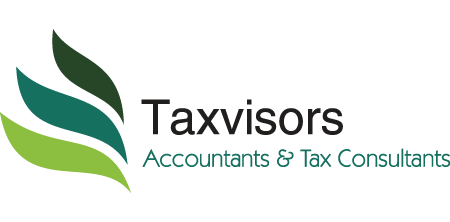As an accounting and tax advisory company, we realize the importance of income tax as a significant part of the Canadian financial landscape for over a century. This blog post will dive into the fascinating history of income tax in Canada, explore its evolution, and shed light on how it operates today.
By delving into the past, we aim to provide a comprehensive understanding of the current taxation system and its implications for Canadian residents.
The Birth of Income Tax in Canada
Although taxation has existed in various forms for centuries, the first instance of income tax in Canada was by the government of Sir Robert Borden during World War I. Canada’s Minister of Finance at the time, Sir Thomas White, introduced the Income War Tax Act as a temporary measure to finance the war effort.
The Income War Tax Act marked a significant shift in Canadian taxation as it established both personal and corporate income taxes. Before its implementation, the government primarily relied on indirect taxes, such as customs duties and excise taxes, to generate revenue. However, with the introduction of income tax, the government gained a new, more direct source of revenue.
At its inception, only 2% of the Canadian population was eligible to pay income tax, as the threshold for taxable income was set relatively high.
The Evolution of the Canadian Income Tax System
Over the years, the Canadian income tax system has undergone numerous changes to better align with the country’s evolving economic and social conditions. In 1948, the federal government introduced a progressive tax system, where higher-income earners were subject to higher tax rates. This progressive system aimed to promote income redistribution and ensure that those with higher incomes contributed a larger share of their earnings.
Some Major Historical Milestones
- 1945: Introduction of the Canadian Tax Foundation (CTF). Established as an independent, non-profit organization, the CTF has been a major contributor to the development of Canadian tax policy and research since its inception.
- 1951: Old Age Security Act. The Old Age Security Act introduced a tax-financed pension plan for Canadians aged 65 and over. This marked the beginning of the federal government’s involvement in social welfare programs.
- 1966: Canada Pension Plan (CPP). This was a contributory social insurance program designed to offer financial security to retirees and their families. The plans protected workers and their families from loss of income due to retirement, with some death, survivor and disability benefits provided. Under the plan, recipients would receive benefits based on their contributed amounts.
- 1966-67: The Carter Commission Report. The Royal Commission on Taxation, also known as the Carter Commission, released a comprehensive report on the Canadian tax system. The report recommended a number of drastic changes, including the introduction of a capital gains tax and a broadening of the tax base.
- 1971: Tax Reform Act. Following the Carter Commission’s recommendations, the federal government introduced the Tax Reform Act, which implemented a number of significant changes to the tax system. These included the introduction of the capital gains tax, a reduction in personal income tax rates, and the creation of the Registered Retirement Savings Plan (RRSP).
- 1991: Introduction of the Goods and Services Tax (GST) – The government introduces GST as a value-added tax, replacing the hidden federal sales tax. The GST has since become a major source of revenue for the federal government.
How Income Tax Works in Canada Today
- The Canada Revenue Agency (CRA) is responsible for administering tax laws and collecting taxes in Canada.
- The modern Canadian income tax system relies on the self-assessment principle, meaning individuals and corporations are responsible for accurately reporting their income and claiming deductions, credits, and benefits as applicable.
- In Canada, both the federal and provincial governments levy income tax. The federal government is responsible for setting the tax rates and brackets, while the provinces have the authority to set their own tax rates within those brackets. Therefore, income tax rates vary across the country, depending on where an individual resides.
- Canadian residents must pay income tax on their worldwide income. This includes income from employment, self-employment, investments, and other sources. Non-residents are only taxed on their Canadian-sourced income.
- Taxpayers fall into different brackets based on their income levels, and each bracket is subject to a progressive tax rate. This means that as a taxpayer’s income increases, they pay a higher percentage of their income in taxes.
- In addition to personal income tax, Canadian corporations are subject to corporate income tax. Corporate tax rates vary depending on the size and type of business
The history of income tax is deeply intertwined with Canada’s economic, social, and political development. From inception as a temporary war tax to its present-day incarnation, income tax has played a crucial role in financing government programs and fostering income redistribution. By understanding the origins and evolution of income taxation, we can better appreciate the role it plays in our society today.
As an accounting and tax advisory company, we strive to educate and inform our clients, allowing them to navigate the complexities of the Canadian taxation system with confidence.
Taxvisors has proudly served the Mississauga and Greater Toronto Area for over 20 years, offering a comprehensive suite of accounting, tax, and bookkeeping services for all your financial needs. No matter your background or the size of your business, our team of experts will provide personalized solutions that suit your specific requirements.
Why wait? Discover the Taxvisors difference and click here to connect with our experienced professionals.

